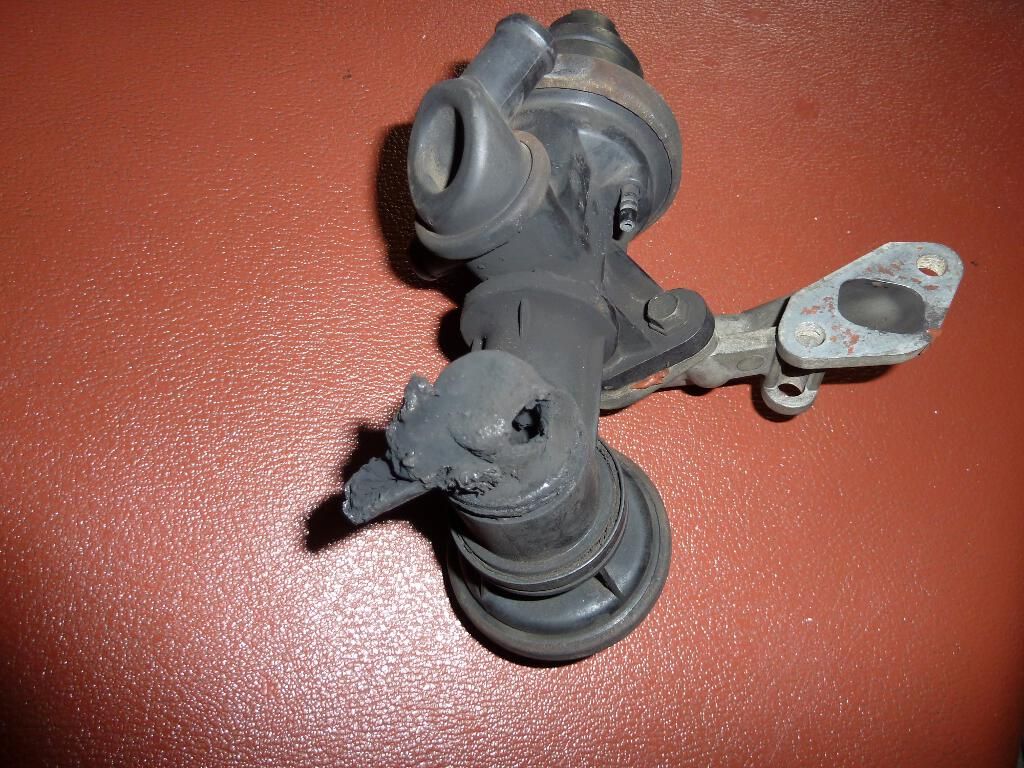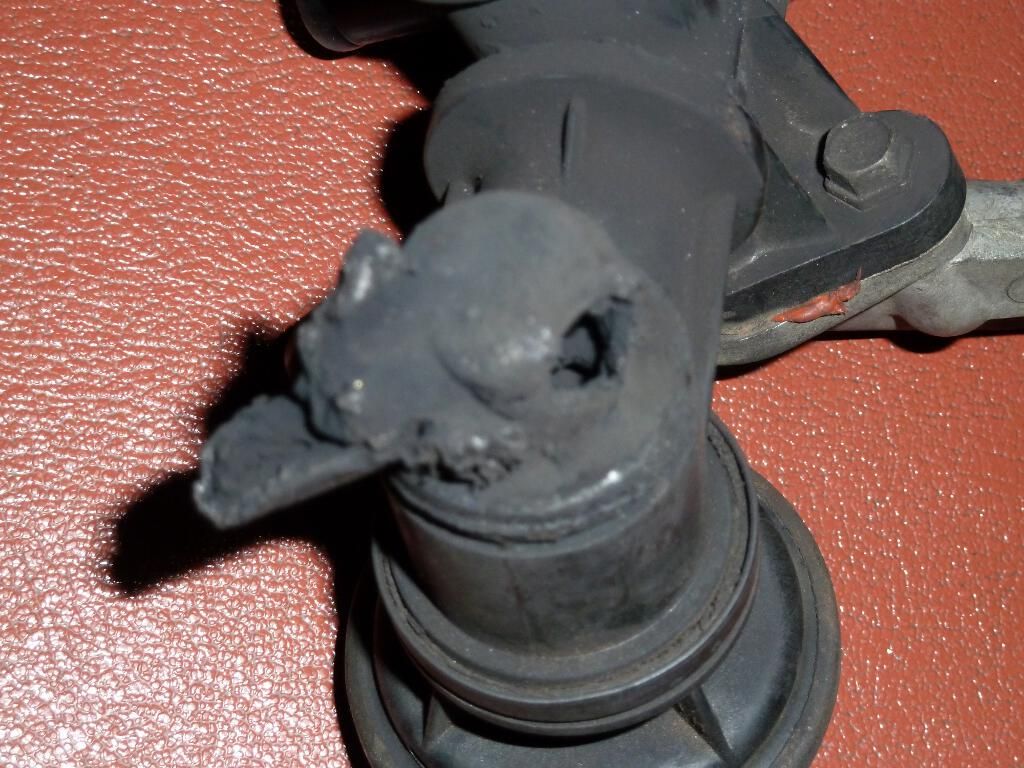jotto
Active member
Whilst checking out the engine bay, I notice a hose with disconnected and with what looked like heat damage. Further investigation found this...


THe bottom of the valve looks as though it has suffered some serious heat damage.
Is the base of the valve simply a 90 degree union where the two rubber hoses meet from either side of the engine? If it is, my thought was to cut off the burnt section and fit a 90 degree copper bend, open to the valve and then secured in place with either epoxy or chemical metal. It wont look pretty but will be unseen and hopefully do the job.
My main worry is what caused it and what other damage will have occurred.
I did notice the hose on the passenger side has suffered heat damage and cracked at the engine end as well. My first thought was possibly a stuck riser valve in the exhaust causing over heating?
The corrugated hose from the air filter to the air pump is also split but I can possibly salvage that.


THe bottom of the valve looks as though it has suffered some serious heat damage.
Is the base of the valve simply a 90 degree union where the two rubber hoses meet from either side of the engine? If it is, my thought was to cut off the burnt section and fit a 90 degree copper bend, open to the valve and then secured in place with either epoxy or chemical metal. It wont look pretty but will be unseen and hopefully do the job.
My main worry is what caused it and what other damage will have occurred.
I did notice the hose on the passenger side has suffered heat damage and cracked at the engine end as well. My first thought was possibly a stuck riser valve in the exhaust causing over heating?
The corrugated hose from the air filter to the air pump is also split but I can possibly salvage that.






